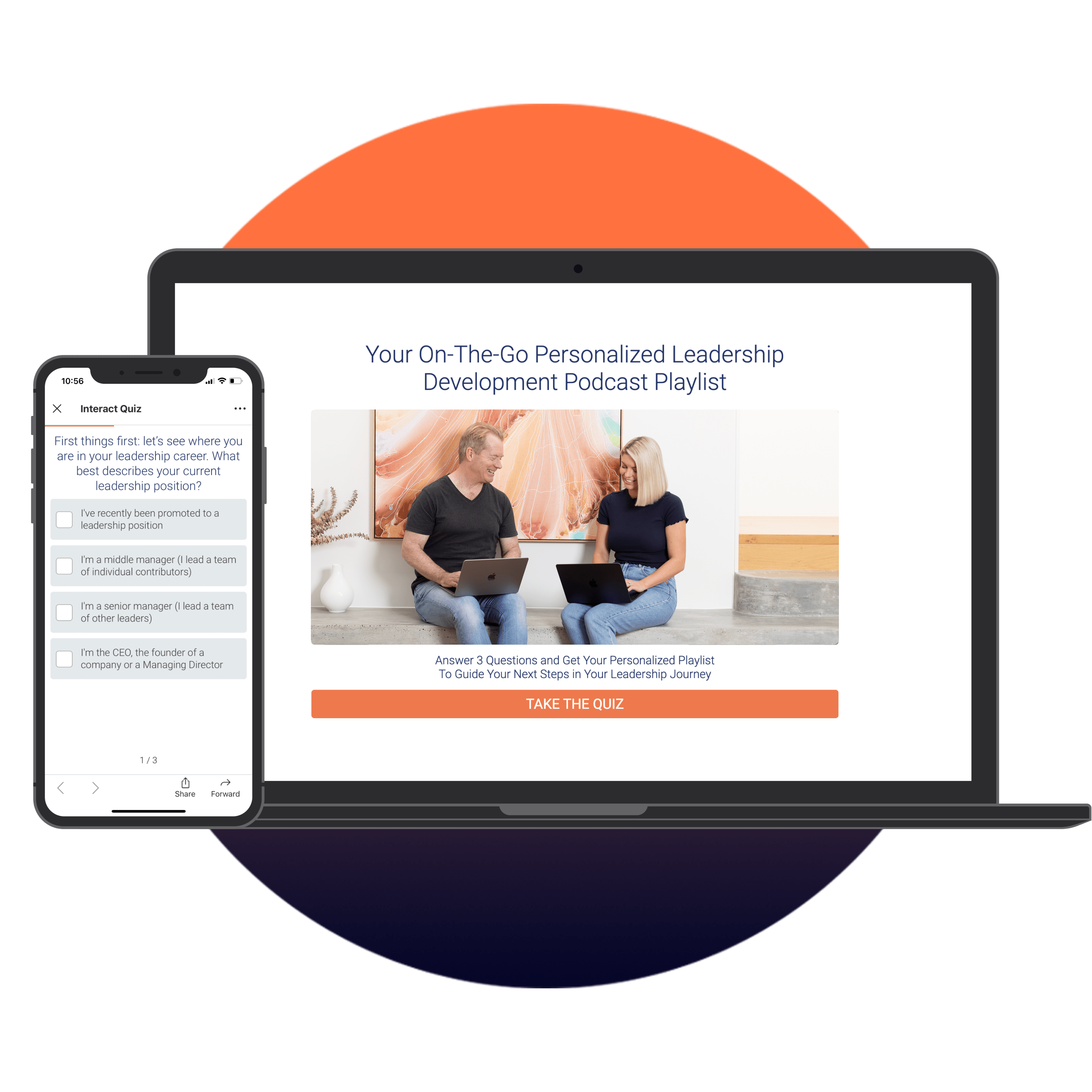With Martin G. Moore

In the final part of my conversation with leadership expert Pat Lencioni, we take a quick dive into the complex dynamics of working with family and close friends in a business setting. Whether you’re leading a family-owned company or managing close-knit teams, this episode is packed with insights on how to set the right boundaries while nurturing important relationships.
Here’s what you’ll take away from this episode:
- Balancing Standards for Family: Learn how to navigate the fine line between holding family members to higher or lower standards than other employees, and how to set clear expectations.
- Favoritism vs. Fairness: Pat shares actionable insights on how to deal with perceptions of favoritism without compromising your values or relationships.
- Friendly, Not Friends: Discover the importance of maintaining professional boundaries while building connected, caring relationships at work.
- Avoiding Nepotism: Understand how to avoid the common pitfalls of nepotism while still holding your family members accountable, and why openness and vulnerability are key to making it work.
- Managing Workplace Relationships: We also explore the complications of romantic relationships in the workplace, how to manage the grey areas, and why setting clear boundaries is essential for leadership success.
If you’re dealing with family in your business or just want to avoid the pitfalls of overly close work relationships, this episode will give you some practical tools you need to navigate these tricky waters.
Tune in as we wrap up this enlightening three-part series with Pat Lencioni, filled with candid advice and leadership gold!
Generate Your Free
Personalized Leadership Development Podcast Playlist

As a leader, it’s essential to constantly develop and improve your leadership skills to stay ahead of the game.
That’s why I’ve created a 3-question quiz that’ll give you a free personalized podcast playlist tailored to where you are right now in your leadership career!
Take the 30-second quiz now to get your on-the-go playlist 👇
Transcript
Marty: Well, look, given that we’ve both mentioned our kids and how unbelievable they are in our businesses, I want to test one thing because I think a lot of people in our community have family businesses they’ve built from the ground up. They find that when they reach a certain size, the whole family dynamic becomes an issue. You’ve got the sister-in-law doing accounts, the brother doing this, and the cousin doing that. As they grow and start hiring more people who aren’t family members, there becomes a clear line between family and non-family. The standards for family are often set differently from those for non-family, and this can cause massive problems as companies try to break through that next barrier of growth. Have you seen this often? I know it’s not going to happen with our kids—they’re awesome—but have you come across this in the businesses you’ve worked with? And how have you helped those founders solve or navigate this?
Pat: I’m not a family business specialist, but I’ve made my own mistakes and learned some good things along the way. I think the key is this: when you work with family members, you’ll hold them to both higher and lower standards in a painful way. Sometimes, you’ll be really tough on them because, well, you know them and you can. You don’t want people thinking you’re playing favorites. But at other times, you need to let them be a favorite because they’re family, and that’s hard because you feel guilty for both.
If you have family in the business, you need to be upfront about it. Say, “Look, I’d love to treat my daughter, my niece, or my cousin exactly the same as the rest of you. But we all know that’s never going to be perfect. I’ll guard against being too hard or too easy on them, but just know that it might happen sometimes, and we can talk about it.” The more you understand them, the better. For example, before Matt joined us and helped with this, I didn’t know he was a WD (Working Genius type). Instead of wondering why my son was like that, now I can understand him and give him the same grace I’d give anyone else. Understanding them is key; otherwise, you’ll just get annoyed with them because they’re your relative. St. Francis said, “Seek to understand,” and we should definitely do that with the people closest to us.
Marty: That’s such an interesting perspective, Pat. I hadn’t looked at it through that lens, but it’s so obvious when you say it. It ties into what we spoke about earlier around vulnerability and openness, which is absolutely critical. Doing this can pave the way for everyone to view the situation differently. It’s not about nepotism or favoritism or being too hard on someone; it’s about setting the right standards to get the most out of them. That’s probably the lesson, right?
Pat: Exactly. We’re terrified of nepotism in our own business, but we’re also terrified of treating our loved ones poorly. We don’t want either of those. Parenting is a constant battle between being too hard or too easy on your kids. You think, “I should demand more of them,” or “I shouldn’t be so tough on them,” and you do that in nanoseconds. The same happens when you work with family. You don’t want to damage the relationship, but you also don’t want people to think there’s favoritism. It’s a back-and-forth struggle, and we need to put that out there so everyone can see it. When everyone acknowledges that challenge, it becomes easier to manage.
Marty: Absolutely. That’s fallibility and vulnerability all in one. It’s fantastic.
Setting the family business aside for a moment, I’m a big believer in the principle of “friendly, not friends.” It’s about having a connected relationship with warmth, care, and compassion but not crossing that line where you’re sympathizing too much and losing the boundaries. People end up taking advantage of your good nature—not because they’re bad people or have bad intentions, but because that’s just how reciprocity works. Over the years, have you landed on a general view on this?
Pat: I think I’ve only really come to a view on this recently. What you said sparked something for me. There’s a point where you’re friendly but not friends, and then there’s dangerous territory if you go beyond that. If you do, you either need to go all in, or don’t go there at all.
In a small business, I’ve worked with some people for 28 years, and they’re more than just friends. They’re not family like my wife and kids, but they’re close. I’ve had to be so vulnerable and clear with them. If something’s wrong at work, we lean into it. If they decide they want to leave, we deal with it deeply. But if you go beyond the limit of being friendly without going all in, that’s when you’re in trouble.
Marty: Yeah, that makes sense. What came to mind straight away is the romantic relationship in the workplace—it’s about as all-in as you can get. We see CEOs and executives getting sacked because of issues surrounding consensual relationships in the workplace. “Consensual” is a tricky term because of the power dynamics. You’re treading into a grey area. There are 7 billion people in the world, half of them could be suitable for you, so why mess around with the 20 you work with?
Pat: I totally agree. It’s dangerous, especially if you’re married.
Marty: Yeah, absolutely.
Pat: It happens way too often. I can’t believe we’re having this conversation, but in the room where I’m sitting, my Chief of Staff, Karen, is here. I’ve worked with Karen for 30 years. She’s one of my best friends in the world. If something great happened to me, besides my wife and kids, Karen is one of the first people I’d call. We’re way beyond just work colleagues. It’s like she’s my sister. But I have to honor her like a sister, and if I stop short of that, it could be dangerous—not maritally, but in terms of boundaries.
What’s great is Karen is friends with my wife, and I’m friends with her husband. Even well-intentioned people can make little mistakes that lead to something terrible. You have to put all this on the table. We have a family-like environment at work, and we’ve embraced that fully. It’s not always optimal, but it’s the reality after 30 years, and we manage it with respect and honesty.
Marty: Yeah, Pat, you’ve made that point really clear. My observation, even just from our short time together today, is that you have the strength, courage, and vulnerability to hold a high standard while maintaining deep relationships. That’s what distinguishes great leadership. Many leaders struggle because they give concessions based on relationships. I’ve learned through bitter experience that close work relationships can be challenging, and I worked out early in my career that I needed to live by the “friendly, not friends” mantra.
Pat: I’ve learned the hard way too. It wasn’t easy, but I realized that if I was going to maintain those relationships, I had to do it this way. Sometimes, it’s friendly, not friends, and other times, it’s way more than friends.
Marty: Sure.
Pa: We just have to accept the limitations of that, as well as the upside.
Marty: Absolutely. Pat, this conversation has been absolutely fascinating. I really appreciate your openness and generosity because not all interviews are like this. I’ve had a heap of fun. It’s been an honor to spend this time with someone I consider a global thought leader who has made a real difference to generational leadership. Thank you, Pat.
Pat: I’ve had a blast. Thank you.
RESOURCES AND RELATED TOPICS:
Part 1 of Patrick’s Interview Series, Leadership Courage and the Future of Hybrid Work: Here
Part 2 of Patrick’s Interview Series, The Secret to Aligning Talent with High-Impact Work: Here
Patrick Lencioni Wikipedia: Here
Patrick Lencioni LinkedIn: Here
Amazon Link: The Five Dysfunctions of a Team
Patrick Lencioni Podcasts:
The NO BULLSH!T LEADERSHIP BOOK – Here
Explore other podcast episodes – Here
Take our FREE 5 Day Leadership Challenge – Start Now
YOUR SUPPORT MATTERS
Here’s how you can make a difference:
Subscribe to the No Bullsh!t Leadership podcast
Leave us a review on Apple Podcasts
Repost this episode to your social media
Share your favourite episodes with your leadership network
Tag us in your next post and use the hashtag #nobsleadership


